Contents
Sometimes trying to get out of debt can feel like swimming through treacle.
No matter how hard you try, your progress can be frustratingly slow.
Surely there has to be a better way?
Today we’re going to look at a huge number of proven tips and ideas to help you get out of debt faster.
No matter how much debt you have, or how long you’ve been trying, use the following strategies to speed up your journey to a debt-free life…
Figure Out Your “Why”
There’s no two ways about it: paying off debt can tough. That means you need to be disciplined and self-motivated to succeed.
Finding your “why” – a deep-seated reason for wanting to become debt free – is one of the most powerful inspirations to change your life.
- Are you sick of struggling to make ends meet at the end of the month?
- Have you got fed up with watching so much of your money on debt repayments?
- Do you have big plans for the future?
Put some time into deciding on your big reasons why now is the time you’re finally going to become debt free, and try to keep those in mind going forward, when things get tough.
Avoid Taking on More Debt
It sounds obvious but a surprising number of people simultaneously pay off debt while absent-mindedly replacing it with other debt.
For example they may pay a huge amount off a personal loan, then realize they don’t have enough money to make it to payday.
That’s OK – stick it on a credit card for a few days.
That’s obviously not a smart move.
Like the ex-smoker who is sure that “just one” cigarette won’t do them any harm, taking on any more debt generally isn’t a smart idea.
So commit to no more debt from now on, no matter how difficult life may get.
Get to Know Your Debts
Maybe you’re one of the lucky few has one single debt that needs repaying. If you’re like most people, however, you’ve probably got multiple loans, credit cards, store cards and more.
As this debt mounts it’s easy to bury your head in the sand, ignoring how much your debt has ballooned. Furthermore, it’s easy to get lost about what you owe to whom.
When you’re looking to pay off your debt you need to make a plan and work towards your goal in an orderly manner.
This all starts with the destination in mind.
So get to know your debts intimately.
Figure out how much you owe to whom, make a note of minimum payments and interest rates.
This information then becomes the starting point to our journey.
Consolidate Your Debts
There are hundreds of debt consolidation companies out there, and this is certainly a “grey” area of the personal finance world. It therefore won’t make sense for everyone.
However if you’ve got a lot of different debts, or you’re paying massive amounts of interest each month, then it can sometimes make sense to simplify everything by consolidating your debt to a more preferable rate.
If consolidating your debt, it can be very tempting to choose an option that reduces your monthly commitment.
Be wary, however, that this can extend the period of time over which you’re repaying your debt, which can mean that you end up paying back more in total before the tab is cleared.
Lastly, getting a low-rate bank loan to cover everything can be cheaper than going to a “proper” debt consolidation company.
Eliminate Interest on Your Debt
Debt is a moving target. Every month as you pay some off, your creditors add on interest. It can feel like you’re taking two steps forward and one step backward.
The trick is to minimize – or eliminate – that backwards step as far as possible.
There are a number of ways you can accomplish this. Firstly, many finance companies are willing to reduce or even freeze interest for a period of time – you just need to ring and ask them.
Another alternative is to take out a low-interest loan (depending on your credit score) then use this to repay your higher-interest debts.
Lastly, some people have made use of interest-free periods on credit cards, moving their debt from one deal to another over time.
While you need to be mindful of what will happen if you forget when the fee-free period ends, for organised individuals this can be a powerful strategy for paying zero interest.
Act Quickly on Late Payments
Hopefully you’re keeping up with your minimum debt repayment commitments right now. It’s crucial this continues throughout the debt repayment process.
Paying your debts late can result in painful late payment fees being added, further interest being added or your credit score being affected.
Worst, some forms of credit mean that the lender can recall the entire debt if they feel it necessary.
This can cause a massive headache.
The lesson is that if you’re serious about becoming debt free then you need to carefully track your outgoings. Learn when these payments are due and confirm to your satisfaction that they’re all made on time.
In the unfortunate situation where a repayment doesn’t go out then act as quickly as possible to resolve the issue.
Compare Savings With Debt
You’re paying interest on your debt.
If you’ve got savings then you’re probably earning interest each month.
The question is how these two numbers compare.
In many cases your savings will earn far less interest than you’re paying to your creditors.
In these cases the simple math suggests that it could make sense to transfer money from your savings to your debt.
While emptying your savings account can be a depressing proposition it’s important to think of the bigger picture. And of course as soon as your debt is repaid then your monthly outgoings will drop, allowing you to rebuild your savings at a faster rate.
As a final note, it’s not wise to run your savings down to zero – we all need a little “financial buffer” in life. However if there are additional funds you can dedicate to debt repayment then this can be a reasonable consideration.
Negotiate With Your Creditors
The outstanding debt showing your statements isn’t necessarily fixed.
Some lenders can be surprisingly open to negotiating on outstanding debts, especially if you’ve struggled to keep up with your repayments.
While ringing your creditors to try and negotiate your balance can be a nerve-wracking experience, you could be pleasantly surprised with the outcome.
Just be sure, when agreeing anything new, that your credit score won’t be negatively affected.
Remove Late Payment Fees
Late payment fees can be the final straw that breaks the donkey’s back.
If you’re barely managing to keep up with your minimum repayment commitments then just one or two of these additional fees can make all the difference.
The reality, however, is that many people have been successful in getting these removed.
If you’ve been hit with such fees then ring your creditors, ensuring your account is now up-to-date and request their removal.
You might be surprised by the end result.
Choose a Debt Repayment Strategy
A common mistake is trying to become debt-free without a plan.
The right strategy can not only help you to pay off your debt faster, but can also help to keep you motivated on the journey.
There are two standard strategies.
The first option is to focus your energy on your highest-interest debts.
Pay just the minimum on your others, while throwing every spare penny possible at the high interest debt.
Once this is down to zero you then work on the next highest and so on.
The benefit of this strategy is that you minimize the total you’ll repay before you become debt free.
The second option is to arrange your debts in order of their size.
You then throw all your effort behind paying off the smallest one, before moving down the list.
While you’ll pay more overall with this strategy, many people find it incredibly motivating to cross one debt after another off their list.
So consider these two options and decide which would give you the most motivation to keep going. Then get applying it to your own financial situation.
Set Yourself Realistic Goals
It shouldn’t come as any surprise that most people wish they were debt free.
However just as many people would like to lose weight, get in shape or quit smoking.
The question is what they’re really doing to make their dreams a reality – and generally the honest answer is very little.
Wishing for something is very different to putting a firm plan in place to achieve that goal. Be honest about your income and outgoing and figure out what you can afford to repay each month.
Using this you can figure out how long it’ll take you to become debt-free.
This then becomes your plan-of-action.
Don’t Over-Commit
When your belly is full of fire and you finally announce to the world that you’re going to pay off all your debt it can be tempting to throw every available penny at your goal. While that’s admirable, the reality is that life often gets in the way.
The last thing you want to do is commit to repayments that you can’t stick with over the long term.
So set realistic goals, trying not to over-commit.
You can always increase your payments over time as you get comfortable with the journey.
Read Inspirational Debt Repayment Stories
Paying off debt can be a lonely experience. Watching your friends going on vacation, buying new cars, generally enjoying life.
If you’re not careful your resolve can start to waver.
Thanks to the Internet, however, there are loads of people that have gone through what you’re experiencing now.
Even better, they’ve come out the other side debt free and living a life they love.
Reading these case studies and inspirational debt repayment stories can help to keep you motivated. You might even pick up a few extra tips and ideas that you can apply to your own journey.
Don’t Compare Yourself to Others
It’s been said that comparison is the thief of joy.
Some people earn a crazy sum of money, or receive help from friends and family members. They’re able to pay off vast amounts of debt in next to no time. Maybe you’re not so lucky.
Personally speaking every penny repaid on my journey to a debt free life was hard won.
I received no help or support.
Comparing my progress to that of other people was tough at times.
Despite trying my best they were paying off more, and becoming debt free much faster.
So try not to compare your results with others.
Don’t beat yourself up for having more debt, or repaying it slower than others. This is your journey, and what really matters is that you reach your eventual goal, now matter how long the road or how slow the going.
Quit Keeping Up With the Joneses
Many of us spend money trying to impress other people; our neighbours, our friends and work colleagues. However this is a battle that never ends; every time you upgrade your car someone else will buy an even nicer one.
So stop caring about what other people think – at least while you’re paying off debt.
Drive your old car into the ground.
Wear last season’s fashion.
And stop trying to keep up with the Joneses.
Seek Progress Not Perfection
While it’s important to have a plan to repay your debt, you also need to accept that there will be issues along the way.
You’ll forget about Christmas coming, or your car will need new tires.
These things happen, and it’s important not to beat yourself up over them. If you do, you could find yourself losing the motivation necessary to achieve your goals.
Focusing on “progress” rather than “perfection” therefore makes sense.
If you slip up or life throws you a curveball just get back up, dust yourself off and get moving again in the right direction.
Improve Your Results Over Time
One little trick that I employed when paying off my debt was trying to beat my previous results.
Each month I’d try to spend a little less on myself, or earn a tiny bit more.
As a result I could pay off just a little bit more debt than the previous month.
I turned it into a game, competing with my previous results.
Keep on doing that month after month and you’d be surprised just how much those tiny changes can compound.
Automate Your Repayments
We all live busy lives, and it’s so easy to forget to make a debt repayment.
Furthermore, if money starts getting tight it can be very tempting to repay less than you planned.
Automating your repayments helps to avoid both these issues.
Once you’ve decided on a debt repayment plan try to arrange with your creditors to automatically make repayments each month without you having to lift a finger.
Track Your Results
When you’re deep in debt it can be scary to receive statements about how much money you owe.
Oddly, once you start on a serious debt repayment journey it can get quite addictive watching those figures dropping every month. This, in turn, can help you to stay motivated and to visualize the impact of your self discipline.
Whether you set up a spreadsheet or use an old-fashioned notebook, spend a little time at the end of each month recording how much debt you’ve managed to pay off and your latest debt balance.
Give Yourself Treats
What happens to people who go on very strict diets for long periods of time? Typically sooner or later they their lose willpower, and end up blowing all their weight loss in a single carb-fuelled frenzy.
While self discipline is a key element of paying off debt, we all need a little treat now and again to keep us sane.
If all you do is earn money just to repay your debts then sooner or later there’s a risk that you’re going to burn out. A little bit of what you like does you good.
A good plan is to reward yourself for achieving specific goals. For example you might treat yourself to a nice meal out when a specific debt has been cleared, or every time you reach another $5,000 repaid.
The specifics will depend on your own personal circumstances, so invest some time into deciding what will encourage you to stretch yourself without taking things so far you get fed up.
Visualize Your Success
One of the things that I found most motivating when I was paying off debt was imagining life without debt repayments.
- Consider how much easier you’ll sleep.
- Imagine not worrying about a surprise bill dropping through the letterbox.
- Think about what you’ll do with all that extra cash each month.
You need to really “see” what this success will mean for you. Every time life starts to get challenging you can return to these thoughts to convince yourself that all the sacrifice will be worth it.
Plan For Your New Life
You don’t just have to visualize your new debt-free life in your head; if you’re not too far away from being debt free then you could actually start to physically prepare for your new life.
You could start looking at vacations that you’ll take once your debt is gone. Those courses you want to go on. The decor you’ll buy for your home.
It all helps to underline the importance of repaying your debt, and keeps you looking to the future.
Build an Emergency Fund
Financial emergencies such as car repairs or a replacement washing machine have the potential to derail your debt repayment plans.
In these cases it can be easy to lose motivation and think “I can’t do this”. An emergency fund helps to avoid these situations.
The size of your emergency fund will depend on your personal circumstances and your level of risk tolerance but three months of living expenses is a typical sum.
Keep this in cash, so it is instantly available if it’s ever needed.
Once this is established then you can throw all your available money at debt repayment, knowing you have a “buffer” if life throws you a curveball.
Learn to Go Without
When I first went on a weight loss diet one of the most challenging aspects was that constant feeling of hunger. You can only fight hunger for so long, before you give in and have to eat something.
Or so I thought.
As it turns out, you can actually learn to love that hunger. Like your muscles aching after an intense workout, it’s evidence that you’re really making changes in your life.
So it is with spending.
For many people, paying off debt is hard because they’re transfixed with all the things they’re not buying.
However when you shift your mindset you can actually start to enjoy this voluntary simplicity.
It’s possible to not only go without – but for it to actually feel good.
Question yourself every time you go to buy something, no matter how small.
Do I really need it? Or is it just a “want”?
And if I do need it, can I borrow it, or do without for a few weeks, or get it cheaper somewhere else?
Personally I went without a lot during my debt repayment journey.
I stopped going on vacation.
I didn’t buy any new clothes.
I drove the same old beat-up car when all my friends were upgrading.
As a result I was able to maximize my debt repayments each month and achieve my goal a lot quicker than I expected.
Audit Your Spending
If you’re struggling with debt then it’s likely there are some issues with your spending.
If we’re honest, most of us pay very little attention to our outgoings. So long as the ATM keeps spitting out money then we’re happy to keep spending.
Very few of us know exactly where our money is going. But this represents an opportunity.
A spending audit can help you get familiar with your typical spending.
It allows you to identify unnecessary spending that you can eliminate or reduce. You’ll be able to spot things you didn’t even know you were paying for – like expensive subscription services.
And with this new-found knowledge you can make smarter choices about your spending, allowing you to put more towards getting out of debt.
Cut Spending to the Bone
When it comes to paying off debt, frugality is going to be your best friend. The less you spend on everyday purchases the more debt you can repay. As a result, the quicker you’ll become debt-free.
One of my favorite concepts here is to “challenge everything”.
Ask whether each purchase is necessary or not.
Consider if you might be able to go without, or to spend less.
Many people, for example, spend over the odds on their phone bill, their household utilities and so on. An hour or so spent on price comparison websites searching for better deals can yield almost instant savings.
Get into the habit of challenging everything and you’ll be surprised just how much you can reduce your expenses.
But don’t just do it once. Even years after I paid off all my consumer debt I still audit my spending each month and challenge every expense.
It’s helped me to remain frugal even when debt was a distant memory.
Decide What to Give Up
It’s all well and good saving money and eliminating unnecessary spending. But are there things you enjoy, but could still potentially cut?
- That gym membership?
- Regular rounds of golf?
- Your summer beach vacation?
You need to be honest with yourself and decide what you’re willing to give up to pay off debt.
It might not be comfortable at first, but you might be surprised by how little you really miss these “essentials” after a few months.
So be brave, and decide what you’re willing to give up to achieve your financial goals.
Find Cheap or Free Hobbies
For many of us, enjoying ourselves is intimately tied to spending money. Everything we do for pleasure costs money – from eating out at a nice restaurant to watching a film at the cinema.
The more free time we have, the more we spend on these experiences.
A smart strategy is therefore to find hobbies that cost little or nothing yet bring you great joy.
Some options can include reading library books in the sunshine, attending seed swaps and getting serious about gardening, hiking in the countryside or taking up running.
Have a No Spend Week
As the name suggests, a “no spend week” involves trying to spend no money at all – apart from the absolute essentials in life (mortgage etc.). Everything else gets put on ice.
You don’t buy groceries – and instead get creative with what you’ve already got in the cupboard.
Perhaps you refuse to fill up your car, and instead walk or cycle when things get low.
The results of this total “spending fast” can be impressive.
So impressive, in fact, that many people voluntarily choose to make it a routine part of their “financial detox”. Perhaps try for one week a month and see how things go.
Lastly, of course, your spending freeze doesn’t necessarily have to last a week. It could be a few days or a whole month; only you know how much “spare” food you’ve got sat around in your home!
Stop Investing
I’ll admit that this is possibly the most controversial debt repayment tips here – and there may be others who disagree with me.
So why do I think that you shouldn’t invest when paying off debt?
Firstly, I want you to get out of debt fast. The quicker it happens, the less painful the experience, and the sooner you can start the next exciting phase of your life. That means throwing everything you can at debt repayment.
Splitting your disposable income in half and using just one pot to pay off debt means it’ll take you a whole lot longer to become debt free.
Of course, thanks to the interest accruing, it’s also the case that the sooner you pay off your debt, the less you’ll repay in total.
Just as importantly, however, is the level of risk involved in many types of investing.
We know from long term studies that over a long enough time period most stock market investments increase in value. However the stock market is very volatile, and the value of investments can and do go down over shorter periods of time.
As the legal departments of investment firms always tell us – you might get back less than you put in.
Debt repayment is different. Every single penny counts, and reduces your overall debt by a predictable amount. There is no “risk”.
My suggestion is therefore to put your investing on ice while paying off debt. Temporarily step off the rollercoaster ride of investments, and throw everything you’ve got at your debt mountain.
Once that’s all cleared then investing for the long term can be the next phase of your financial journey.
Cook at Home
It’s crazy just how expensive food and drinks can be outside the home. Just try comparing the price of buying a tea at Starbucks with making one at home.
Whether we’re talking about a pleasant evening meal out with friends, or simply buying a sandwich while you’re at work, all this eating out adds up fast.
Preparing food at home is the solution.
Buy a few books and learn to prepare amazing food at home.
Heck, try growing your own food too if you want to save even more. Take a packed lunch with you to work. Then throw what you would have spent on food at your debts.
Swap Your Utility Supplier
The services we pay for on a monthly or annual basis have a nasty habit of creeping up in cost without us noticing.
Car insurance is a case in point, as are electric and water. New customers are often offered “teaser” rates, which then slowly increase over time. Soon enough you realize you’re the schmuck paying over the odds.
So use price comparison sites to find a better deal. Just last month I managed to reduce my car insurance by almost 50% having spent just half an hour comparing quotes. In contrast, most people will claim to be “too busy” and will simply let their insurance auto-renew – at a greatly increased price.
Upgrade Your Phone Package
Upgrading doesn’t necessarily have to entail committing to a higher tariff or the latest shiny new phone. It’s just as possible to move to a smaller package. Some providers will also offer you cash incentives not to take a new phone when you renew.
I suppose you might call it “downgrading” but that just sounds too negative.
Check your recent usage to see if a cheaper tariff or an alternative provider might offer you a better deal and don’t be afraid to jump ship to save money.
Make or Find Gifts
According to Investopedia the average American spends $900 a year on Christmas gifts. Some people, of course, spend far more. And this figure ignores other gift-giving opportunities like birthdays, anniversaries, weddings and baby showers. Ouch – that’s a lot of money.
There are, however, alternatives.
Firstly, of course, you could opt out of gift-giving entirely.
Ask your family not to buy you anything at Christmas and tell them that in exchange you’ll do the same. For many people, myself included, this just feels a bit stingy and takes some of the fun out of the festive season.
An alternative is a “Secret Santa” event where you only need to buy a single gift, and there is a fixed budget.
Possibly my favorite strategy of all though is to make or find gifts. To swap the spending of money for investing time.
Let me give you an example. My father mentioned in general conversation an out-of-print book that he’d been searching for without success. He’d spent a few years looking for a copy and had still come up empty. With a little time and effort, however, I managed to find him a copy abroad and had it shipped here.
It made his Christmas.
And it cost me almost nothing.
I‘d also argue that such a gift is just as special – if not more so – than simply throwing a load of money at the holiday season.
Freecycle
The freecycling network exists to reduce the items going to landfill. Rather than throwing something away, it is instead made available for free to other community members.
It’s possible to find everything from household furniture to greenhouses, from bicycles to fresh vegetables here.
Joining your local freecycling group can therefore be a great way to simultaneously live a more eco-friendly lifestyle and save money to pay off debt.
Look After Your Possessions
The better you look after your possessions the longer they’ll last. This, in turn, can save you money as you won’t have to replace them as soon.
Put your phone in a case.
Fit a screen protector.
Clean your garden tools properly after use.
Empty the lint compartment of your washing machine.
Check the fluid levels in your car.
And pay off debt faster as a result.
Put Off Expensive Purchases
Very few purchases are anywhere near as urgent as we think. Many of them are “wouldn’t it be nice if…” purchases.
All the same, many of us try to rationalize this spending in our minds. We tell ourselves lies so we don’t feel so bad about all that spending.
If you want to pay off debt fast then now is the time to stop this madness.
Your current car really is fine – at least for another year or two.
That old-fashioned kitchen might not look nice but it works fine for now.
How many times will you really use that boat you’re looking at?
Take a Staycation
Vacations can be expensive, but they don’t have to be. Consider staying closer to home and rent somewhere locally rather than flying abroad and staying in a luxury resort.
Even better, don’t go away at all – instead enjoy individual days out with your family, returning home each evening.
Not only will you save on flights and hotels, but pet owners won’t need to pay for house sitters or kennelling.
Put on a Sweater
Spend less on your energy bill by turning down the heating. Rather than swanning around in shorts and a t-shirt in December, consider dressing more suitably at home.
Start Exercising
Exercising has so many benefits. But how can it help you pay off debt? Firstly, of course, regular exercise can help to keep you warm in colder weather, meaning you might need to spend less on heating.
Just as importantly, however, committing to regular exercise teaches you self-discipline.
It can help you feel more in control of your life, as you’re investing time into something positive. This, in turn, can affect other parts of your life. Such as the motivation required to reduce your spending and pay off debt.
Eat “Real” Food
We live in a world of ultra-processed food.
Junk food. Microwave meals. Sugar-rich milkshakes. Artificial colors, flavors and preservatives.
Food that might fill you up initially, but all too soon leaves you feeling hungry. And so the cycle repeats.
“Real” food, in contrast, is not only healthier for you but can keep you fuller for longer. More nutrition, less food. And therefore more money saved.
Right now I fast in the morning – meaning no breakfast.
For lunch I take a salad to work, consisting of salad leaves, tomatoes, cucumber and more that has been grown at home.
It’s really only my evening meal I have to “pay” for.
And that can save you a whole load of money ready for your debt repayment plan.
Accept Overtime
Paying off debt fast isn’t just about reducing your spending – you should also try to increase your income as much as possible. The wider this gap between income and expenses becomes, the more debt you can pay off, and the faster you’ll reach your goal.
Possibly the easiest way to earn more money is simply to accept any overtime that gets offered by your employer. If someone rings in sick, or they need an extra pair of hands on the weekend, then be the person ready to help.
Just be sure you’ll get paid for it before you say yes.
Get a Second Job
If your employer doesn’t offer overtime then another option is to get a second job.
Even working a full time job you probably get two days a week off. Use this time wisely to work a second job, and put all this additional income towards your debt repayment plan.
Push for a Pay Raise
Some readers will find that they can negotiate a pay raise at their current employer. More money for doing the same thing.
Consider setting up a meeting with your line manager to discuss the possibility and ask what you’d need to do to achieve a salary increase.
Become a Freelance Writer
There are thousands of websites looking for writers to produce articles for them. So long as you can research an article and type it up no special skills are required.
That means it’s something that almost anyone can do.
The first time I tried finding work as a freelance writer I landed a $1,200 contract in a matter of days. It took me less than two weeks to complete it and get paid.
While you may not be as lucky, there is plenty of work out there for people willing to produce high quality work. Best of all you can do it from the comfort of your own home, fitting it around your other responsibilities.
Sell Your Possessions
Most of us have stuff in our lofts, garages and cupboards that we don’t use anymore. That stuff is worth money.
So clean out your home, sell your unwanted possessions and put all that cash towards paying off your debts.
Join the Gig Economy
Whether you’re dog sitting with Rover or riding around town with Deliveroo the so-called “gig economy” provides all sorts of opportunities to earn more money outside work.
On the downside, the work can be unpredictable.
If you’re serious about earning extra money with the gig economy it can make to sign up with multiple services at once, so you’ve got the best chance of work being available when you’re free.
Look for Cash Incentives
Some companies offer cold hard cash to do business with them.
Here in the UK, for example, some banks will give you money just for opening a bank account with them.
Some phone providers offer cash when you upgrade with them.
Look at deals websites to see what’s currently available as these deals constantly change.
Use Cashback Sites
Cashback websites give you money back on your normal spending.
They’re also super-simple to use.
If you’ve got to spend money on something then why not try to get some cashback anyway, which you can put towards paying off debt.
Just be careful you’re not so sucked into the world of deals and discounts that you end up spending more than you normally would.
Collect Loyalty Points
Numerous companies run loyalty schemes that give you discounts, coupons or cash back for shopping with them. They typically cost nothing to join yet can provide a nice “bonus” at a later time.
I carefully choose to spend money with the companies that offer the best incentives, then save all these up until November each year. I then use all my points to pay for Christmas.
When the average person is spending more than at any other time of the year, my spending actually goes down.
What tips and suggestions have helped you to pay off debt? Please leave your suggestions in the comments section below so other readers can benefit…


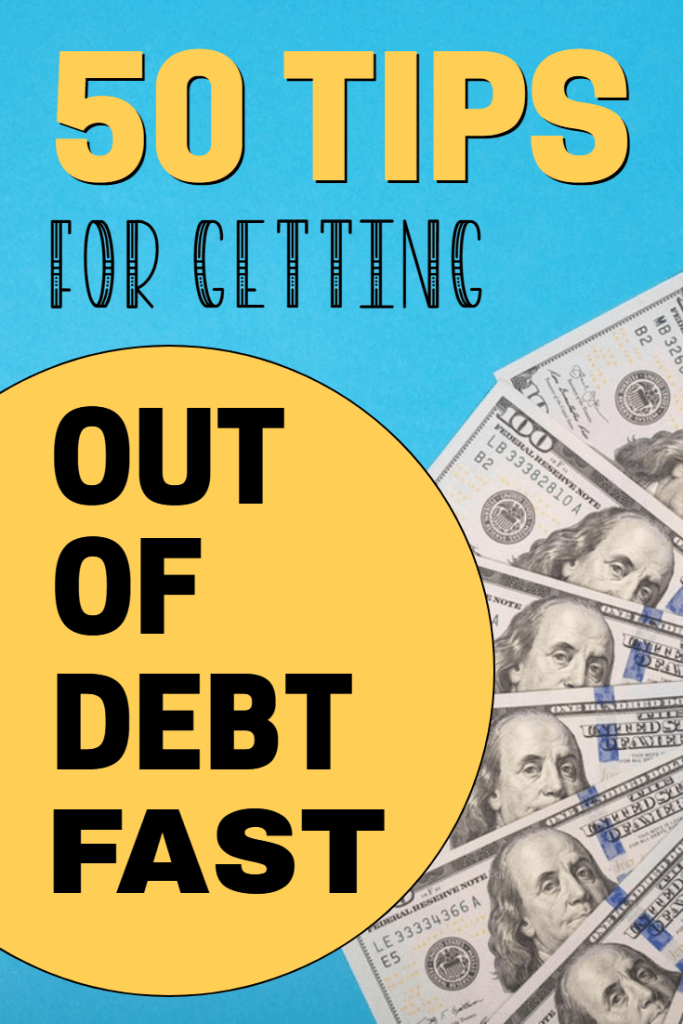


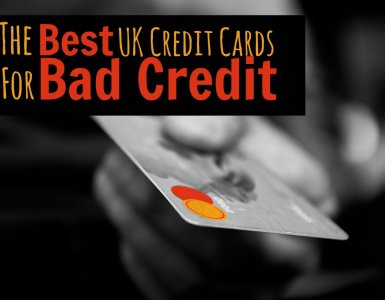
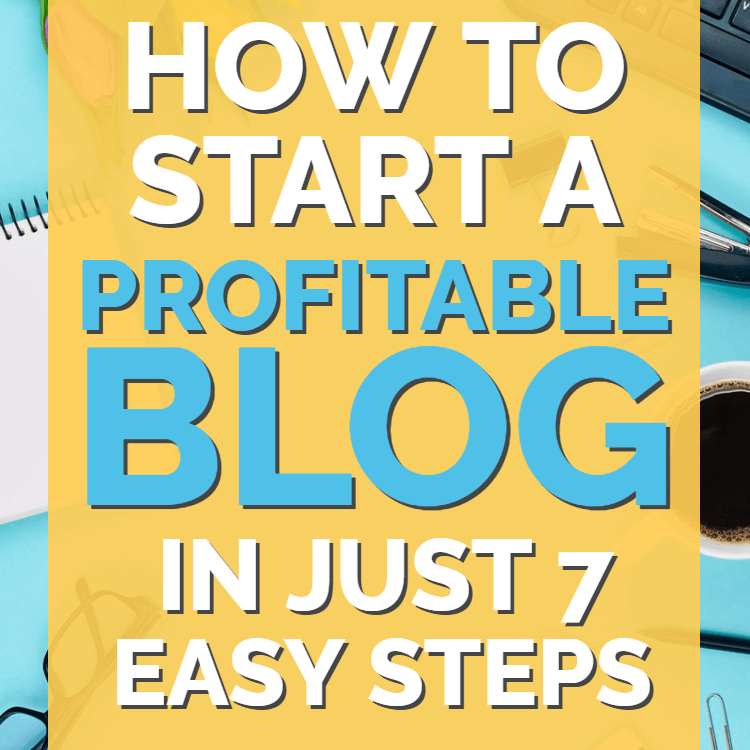

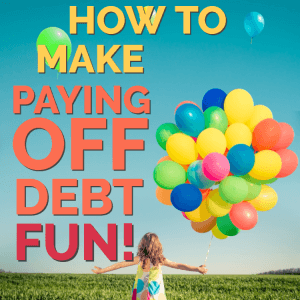
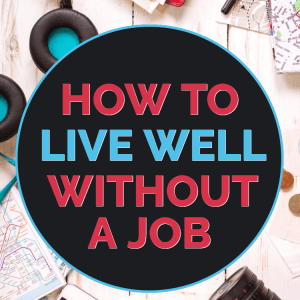
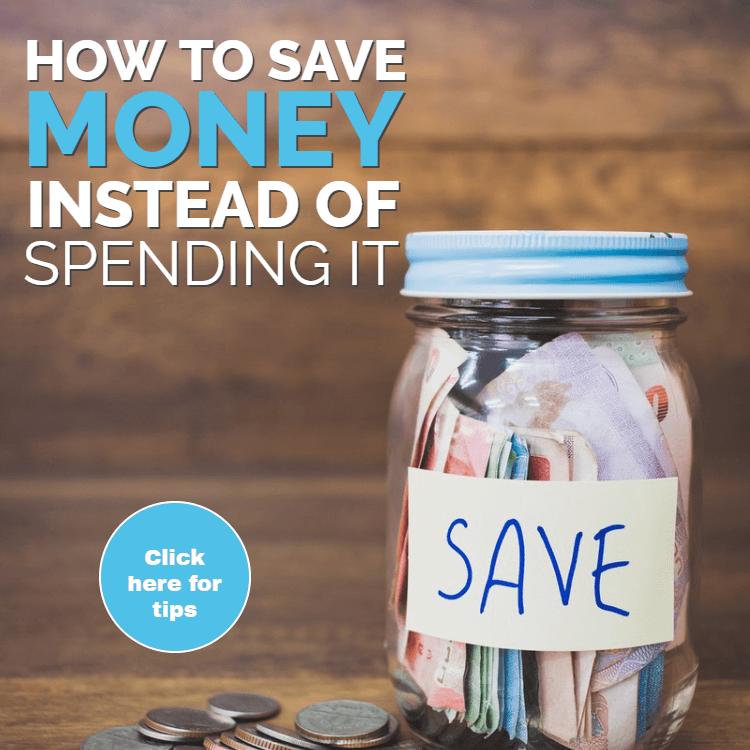
Add comment